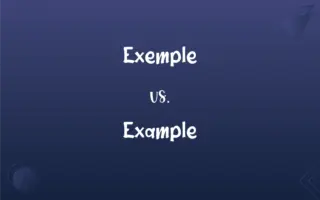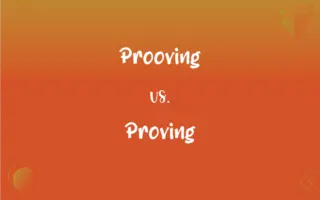Citezenship vs. Citizenship: Mastering the Correct Spelling
Edited by Harlon Moss || By Janet White || Updated on March 9, 2024
"Citezenship" is an incorrect spelling; the correct spelling is "citizenship." Citizenship refers to the status of being a citizen with associated rights and responsibilities.

Which is correct: Citezenship or Citizenship
How to spell Citizenship?

Citezenship is Incorrect

Citizenship is Correct
ADVERTISEMENT
Key Differences
Remember that "citizenship" starts with "citizen."
Associate "citizenship" with "relationship," both ending in "ship."
Visualize official documents with the word "citizenship" to reinforce the correct spelling.
Replace the incorrect 'z' with an 's' as in "citizen."
Like many status words, "citizenship" ends with "ship."
ADVERTISEMENT
Correct usage of Citizenship
She is applying for citezenship in the new country.
She is applying for citizenship in the new country.
Being born in the country does not automatically grant you citezenship.
Being born in the country does not automatically grant you citizenship.
Many people value the rights and duties that come with citezenship.
Many people value the rights and duties that come with citizenship.
His citezenship was finally approved after years of waiting.
His citizenship was finally approved after years of waiting.
The test for citezenship includes questions about the country's history and government.
The test for citizenship includes questions about the country's history and government.
Citizenship Definitions
Citizenship involves the rights and duties of a person in relation to their country.
Voting is a key part of citizenship.
Citizenship is the status of being a citizen of a particular country.
She was granted U.S. citizenship after five years of residency.
Citizenship refers to legal membership and belonging to a specific nation.
His citizenship in France afforded him certain privileges.
Citizenship also denotes a sense of national identity and allegiance.
Her Canadian citizenship was a significant part of her identity.
Citizenship implies active participation in the civic life of a community.
The mayor emphasized the importance of active citizenship.
The status of a citizen with its attendant duties, rights, and privileges.
The status of being a citizen, in its various senses.
The state of being a citizen, in its various senses.
The state of being a citizen; the status of a citizen.
The status of a citizen with rights and duties
Conduct as a citizen;
Award for good citizenship
Citizenship Sentences
Dual citizenship allows a person to be a citizen of two countries.
Citizenship education is now part of the school curriculum.
Citizenship in a democracy comes with both privileges and responsibilities.
His dream of gaining citizenship finally became a reality.
She took a course to prepare for the citizenship test.
Understanding your rights is an important part of citizenship.
Obtaining citizenship can be a long and complex process.
Active participation in community services is a form of practicing good citizenship.
They discussed the responsibilities of citizenship in their social studies class.
The government offers a citizenship guide to help applicants.
The path to citizenship often involves language and civics tests.
The ceremony for new citizenship recipients was very moving.
Holding citizenship in this country allows you to vote in elections.
Citizenship ceremonies are a celebration of new beginnings.
Renouncing one's citizenship is a serious decision.
Children born in the country are granted citizenship at birth.
She is proud of her citizenship and the freedoms it grants her.
The rights of citizenship include freedom of speech and assembly.
She volunteers in her community as part of her commitment to good citizenship.
The senator spoke about the value of active citizenship.
Gaining citizenship was the final step in his journey to becoming a full member of the society.
Citizenship requires understanding and respecting the laws of the country.
The museum exhibit on citizenship highlighted the importance of voting.
Citizenship day is celebrated to honor the country's citizens.
They held workshops to help immigrants apply for citizenship.
Citizenship Idioms & Phrases
Global citizenship
The idea that one's identity transcends geography or political borders and that responsibilities or rights are derived from membership in a broader class: humanity.
Volunteering for international charities is one way to practice global citizenship.
Citizenship at birth
The right of an individual to become a citizen of the country they were born in, automatically.
Citizenship at birth is granted in many countries around the world.
Dual citizenship
The status of being a citizen of two countries at the same time.
Holding dual citizenship can have benefits, such as the ability to live and work in two countries.
Earned citizenship
The process through which a non-citizen can become a citizen, typically through residency, language proficiency, and understanding of the country's history and government.
Earned citizenship is a proud achievement for many immigrants.
Second-class citizenship
Being treated as if you have fewer rights or less value than other citizens.
The law aimed to eliminate second-class citizenship for immigrants.
Certificate of citizenship
An official document proving a person's citizenship.
You'll need your certificate of citizenship for the passport application.
Pathway to citizenship
The steps or process by which a non-citizen can become a citizen, usually involving certain requirements.
The new policy created a clearer pathway to citizenship for long-term residents.
Active citizenship
Participation in the community to improve the lives of its members and the environment.
Volunteering at the local food bank is a form of active citizenship.
Good citizenship
Exhibiting behavior and actions that are beneficial to the community and society.
Recycling and helping neighbors are examples of good citizenship.
Oath of citizenship
A formal declaration by which a person swears allegiance to a country and its laws, officially becoming a citizen.
Taking the oath of citizenship was the most memorable day of her life.
Citizenship test
An examination that a person must pass to become a citizen, typically covering the country's language, history, and government.
He studied hard for the citizenship test and passed on his first try.
Citizenship by descent
Obtaining citizenship because one or both of your parents are citizens of the country, even if you were born elsewhere.
She claimed her Italian citizenship by descent, thanks to her grandmother's heritage.
Citizenship through naturalization
The process by which a non-citizen in a country may acquire citizenship or nationality of that country.
After living in the country for five years, he began the process of citizenship through naturalization.
Citizenship status
The condition or position of being a citizen of a particular country, including the rights and duties that come with it.
Her citizenship status allowed her to vote in the national election for the first time.
Citizenship pledge
A declaration that new citizens make, promising to respect and obey the laws of their new country.
The citizenship pledge is a meaningful moment for many new citizens.
Rights of citizenship
The legal rights given to a person by virtue of being a citizen of a particular country.
The rights of citizenship include voting and freedom of expression.
Revocation of citizenship
The act of taking away someone's citizenship, making them no longer a citizen of that country.
Revocation of citizenship is a severe penalty that can be used against those who commit serious crimes against the state.
Conditional citizenship
Citizenship status that is granted under certain conditions that must be met for it to become permanent.
Some countries offer conditional citizenship to investors, provided they contribute to the economy.
Citizenship education
Teaching the rights, responsibilities, and duties of being a citizen in a particular country.
Citizenship education is crucial for fostering informed and engaged citizens.
Citizenship ceremony
A formal event where new citizens are officially granted citizenship, usually including taking an oath.
The mayor presided over the citizenship ceremony, welcoming dozens of new citizens.
FAQs
Why is it called citizenship?
It's called "citizenship" because it denotes the condition or status of being a citizen, with the suffix "-ship" indicating a state or condition.
What is the verb form of citizenship?
There is no direct verb form for "citizenship"; the related verb is "naturalize."
Which vowel is used before citizenship?
The vowel 'i' is used before "citizenship" in the word "citizen."
Which preposition is used with citizenship?
Prepositions like "of" and "in" are used, as in "citizenship of a country."
Which conjunction is used with citizenship?
Conjunctions like "and" and "or" can be used, depending on context.
What is the plural form of citizenship?
The plural form is "citizenships."
What is the third form of citizenship?
"Citizenship" doesn't have verb forms.
What is the pronunciation of citizenship?
Citizenship is pronounced as /ˈsɪt.ɪ.zən.ʃɪp/.
What is the singular form of citizenship?
The singular form is "citizenship."
What is the root word of citizenship?
The root word is "citizen."
Is citizenship a noun or adjective?
Citizenship is a noun.
Is citizenship an adverb?
No, "citizenship" is not an adverb.
Is citizenship an abstract noun?
Yes, "citizenship" is an abstract noun.
How do we divide citizenship into syllables?
"Citizenship" is divided as cit-i-zen-ship.
How many syllables are in citizenship?
There are four syllables in "citizenship."
How is citizenship used in a sentence?
Example: "Acquiring citizenship in another country can be a complex process."
Is citizenship a negative or positive word?
Citizenship is generally a neutral word, but it can have positive connotations regarding belonging and rights.
Is citizenship a vowel or consonant?
"Citizenship" is a word, not a vowel or consonant.
Is citizenship a countable noun?
Yes, "citizenship" is a countable noun.
Is the word citizenship imperative?
No, "citizenship" is not an imperative; it's a noun.
What is a stressed syllable in citizenship?
The stressed syllable in "citizenship" is the first: cit.
What is the second form of citizenship?
There are no verb forms for "citizenship."
Is citizenship a collective noun?
No, "citizenship" is not a collective noun.
What is the opposite of citizenship?
The opposite of citizenship could be "statelessness."
What is the first form of citizenship?
As a noun, "citizenship" does not have verb forms.
Which article is used with citizenship?
Both definite ("the") and indefinite ("a", "an") articles can be used.
Is the citizenship term a metaphor?
"Citizenship" can be used metaphorically but is primarily a literal term.
What is another term for citizenship?
Another term for "citizenship" is "nationality."
Which determiner is used with citizenship?
Determiners like "the," "a," or "his/her" can be used.
What part of speech is citizenship?
Citizenship is a noun.
About Author
Written by
Janet WhiteJanet White has been an esteemed writer and blogger for Difference Wiki. Holding a Master's degree in Science and Medical Journalism from the prestigious Boston University, she has consistently demonstrated her expertise and passion for her field. When she's not immersed in her work, Janet relishes her time exercising, delving into a good book, and cherishing moments with friends and family.
Edited by
Harlon MossHarlon is a seasoned quality moderator and accomplished content writer for Difference Wiki. An alumnus of the prestigious University of California, he earned his degree in Computer Science. Leveraging his academic background, Harlon brings a meticulous and informed perspective to his work, ensuring content accuracy and excellence.


































































